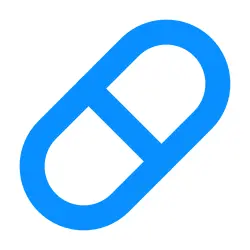Treatments (0)
Advice for Period Pain
Period pain can vary in severity and duration, with common symptoms including:
- Cramping in the lower abdomen, which may spread to the back or thighs.
- Aching, throbbing, or sharp pain, often worse in the first few days of menstruation.
- Nausea, dizziness, or headaches.
- Bloating and digestive discomfort.
- Fatigue and muscle aches.
For some women, period pain is mild, while others experience severe pain that interferes with daily activities.
Treatment for period pain focuses on relieving symptoms and managing discomfort through medications, lifestyle adjustments, and hormonal treatments.
-
Pain Relief Medications:
- Mefenamic Acid 500mg – A non-steroidal anti-inflammatory drug (NSAID) that reduces pain and inflammation by blocking prostaglandins, which cause cramps. It is often prescribed for moderate to severe period pain.
- Ibuprofen or naproxen – Help reduce uterine contractions and inflammation.
-
Hormonal Treatments:
- Combined contraceptive pills (e.g., Femodette, Lucette, Levest, Cilique) – Help regulate periods and reduce cramping by stabilising hormone levels.
- Hormonal IUDs – Can lighten periods and reduce menstrual pain.
-
Lifestyle and Natural Remedies:
- Applying heat packs to the lower abdomen relaxes muscles and relieves cramps.
- Regular exercise improves circulation and releases endorphins to reduce pain.
- Magnesium, omega-3s, and herbal supplements may offer natural relief.
For severe or persistent period pain, consulting a doctor about prescription treatments like Mefenamic Acid 500mg can provide effective relief and improve overall well-being.
While period pain cannot always be completely prevented, the following steps can help reduce its severity:
- Maintain a healthy diet with anti-inflammatory foods like fruits, vegetables, and whole grains.
- Regular exercise, including yoga and stretching, to improve circulation.
- Limit caffeine and alcohol, which can worsen cramps.
- Manage stress through relaxation techniques like meditation or deep breathing.
- Track menstrual cycles to prepare for symptoms and adjust lifestyle habits accordingly.
By combining medication, lifestyle changes, and hormonal treatments, period pain can be effectively managed, improving overall comfort and well-being.
Period Pain FAQs (6)
Period pain, or dysmenorrhoea, refers to cramping, aching, or discomfort in the lower abdomen that occurs before or during menstruation. It is caused by uterine contractions that help shed the womb lining.
Most period pain lasts 1 to 3 days and improves as the flow decreases.
Yes, combined contraceptive pills (e.g., Femodette, Lucette, Levest, Cilique) can regulate periods and reduce cramping. Hormonal IUDs can also lighten periods and ease pain.
- Applying heat packs to the lower abdomen.
- Exercising regularly to improve blood flow.
- Taking magnesium, omega-3s, or herbal supplements.
- Reducing caffeine and alcohol, which can worsen cramps.
Mild to moderate pain is common, but severe, worsening, or persistent pain should be checked by a doctor.
Seek medical advice if:
- Pain is severe and disrupts daily life.
- Over-the-counter pain relief does not work.
- Periods are unusually heavy or irregular.
- You suspect an underlying condition like endometriosis or fibroids.

